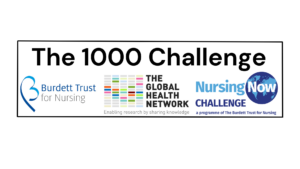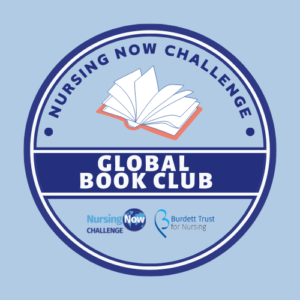Disrupting the status quo to improve health outcomes
This blog was written by Jeannine Blake, MS BSN RN, PhD Candidate, Marieb Center for Nursing & Engineering, Elaine Marieb College of Nursing & Institute for Applied Life Sciences, University of Massachusetts Amherst
Moving from ICU nursing to IV Pump Research
My journey to pursue a PhD in Nursing and a career in research did not come easily or quickly. I never anticipated finding an area of research that would uncover grave flaws in the technology we use every day as acute care nurses, and an area of research in which nursing input is so desperately needed. Practicing as an Intensive Care Nurse, I always felt challenged and engaged with patients, families and fellow clinicians. At some point, however, I found myself not only missing the unique challenge that comes with the formal academic environment, but I also felt like I could have a broader impact on health outcomes through research. I continued to practice as an ICU nurse during the first year and a half of my graduate education.
I was curious about studying ICU delirium and death and dying in critical care, but I soon realized my interest in the safety of intravenous smart pumps (IVSP), a technology that I was intimately familiar with in my practice. Critical care nursing is filled with challenges that can interfere with the nurses’ ability to provide the physical and emotional care patients and families need. A daily challenge for nurses is that the technology and devices available are not designed by nurses and is often complicated by poor clinical usability and complex use requirements. Unfortunately, these products are often designed with good intentions but little or no understanding of the user experience for the nurses in the clinical environment.
Shifting from Trusting Technology, to Questioning its Quality
When I was caring for critically ill patients, the IVSP could be challenging to use but I always felt reassured that I could perform other necessary care tasks while my patient received the medication as it had been programmed into the pump. It wasn’t until I began to explore the safety of IVSP through my PhD research that I learned I was putting too much trust in IV smart pumps (or IVSP) to deliver life-critical medications accurately. I was likely witnessing multiple undetected medication errors every shift due to poorly designed and outdated technology. Even armed with the knowledge of proper setup, there was little difference I could make at the bedside due to the physical limitations, complex needs of my patients and constant care management challenges. I grew frustrated and this ultimately led to my choice to leave bedside nursing in pursuit of a full-time research career. I know that my research on IVSP will have a positive impact on safety for millions of patients who receive medication infusions each year.
I feel very fortunate to find myself in my current position as a PhD Candidate at the University of Massachusetts (UMass) Amherst Elaine Marieb College of Nursing and Marieb Center for Nursing and Engineering Innovation. I have been fortunate to find amazing mentors in both Nursing and Engineering who encourage me to pursue my research and passions for collaborative innovation. As a PhD Candidate planning to graduate in Spring 2022, I will go on to continue my professional growth through postdoctoral study in Engineering. My research in IVSP safety is only one of many examples for how nurses and engineers can work together to make healthcare products and devices more usable for nurses and safer for patients.
Bringing Clinical Relevance to Our Technology
As a nurse researcher, I draw on my experience as an ICU nurse to inform my choices for how I invest my time and energy. I strongly believe that the clinical relevance of a research project, healthcare device or care system is of utmost importance. Clinical relevance to me means that the work we do can be related directly to what actually happens during patient care. All too often, products being released or research done with all good intentions but poorly informed by the true needs of the nurses, the care environment and the patient needs. As a researcher, I strive to maintain clinical relevance as guiding principle when identifying clinical problems and then researching, innovating and developing potential solutions.
Elevating the Nursing Voice
The farther removed I am from clinical practice, the more I must rely on the incredible nurses who continue to provide direct care. My research must be informed by the nurses who are on the front lines as product end-users to provide meaningful solutions– these nurses must be involved in the process. I remember being frustrated with the usability of technology or systematized protocols at the bedside yet feeling like when I spoke up within the hospital network, my ideas and perspectives were not valued and no impact was felt. This perspective changed once I met researchers at UMass Amherst, the audience for discussing problems and solutions is important. My hope is that no matter what role a nurse plays, they feel heard, valued and that their involvement in research can help drive valuable, clinically relevant change. There is no shortage of opportunity for nurses to disrupt the status quo through collaboration with folks in research who can encourage and support solution development.




